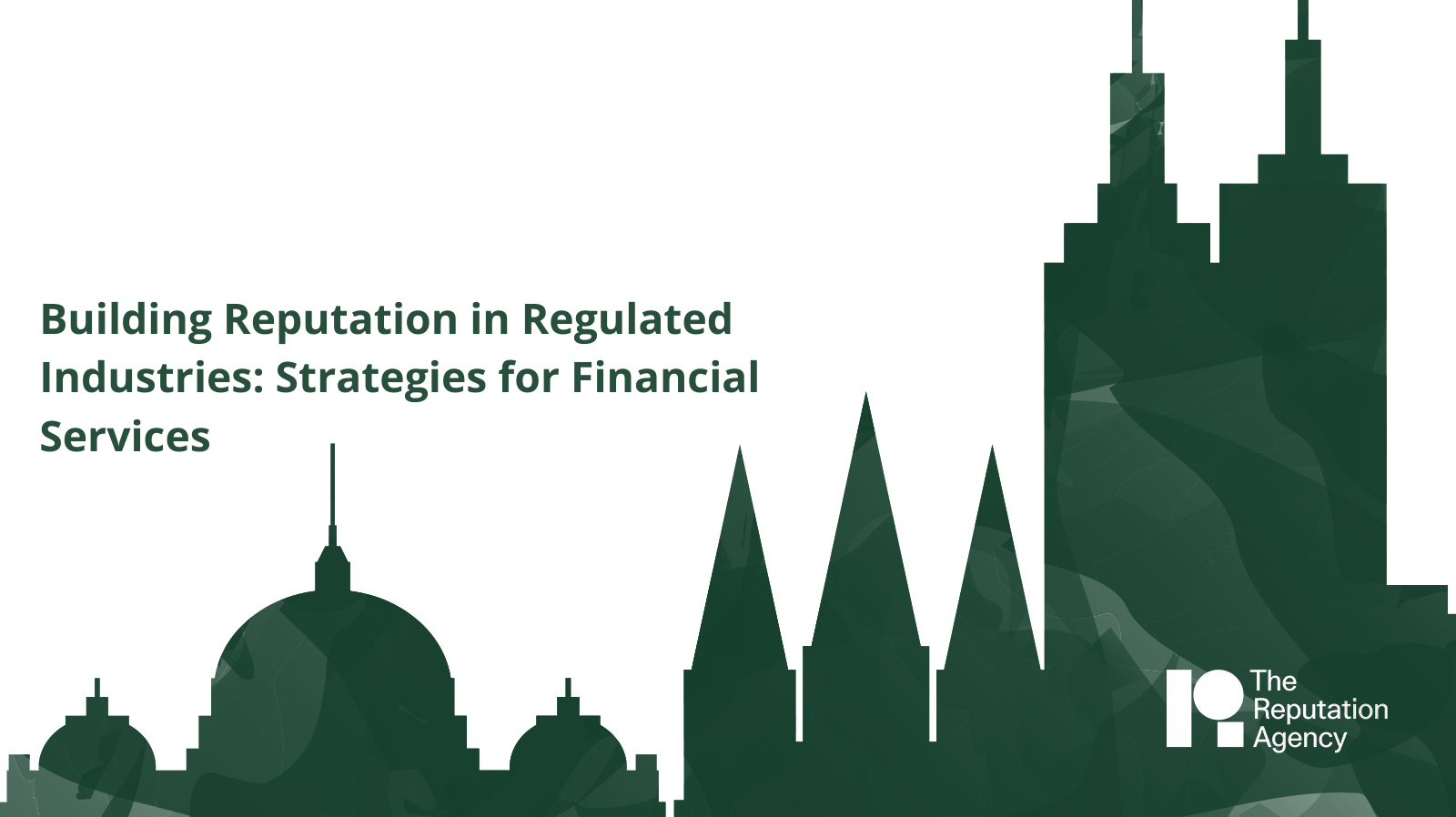Building Reputation in Regulated Industries: Strategies for Financial Services
Why Reputation Matters in the Financial Services Sector
In highly regulated industries like financial services, reputation is everything. A single misstep can damage trust, lose clients, and trigger regulatory scrutiny. For companies in this space, building and maintaining a strong, positive reputation is not just important—it’s essential for long-term success. Clients, investors, and regulators all closely monitor a financial institution’s reputation, making it vital to establish credibility, transparency, and trustworthiness from the outset.
Key Strategies for Building Reputation in Financial Services
1. Prioritise Transparency and Compliance
Regulatory bodies hold financial services companies to high standards. Being transparent about business practices, financial performance, and regulatory compliance is critical:
Clear Financial Reporting: Regular and honest financial reporting assures clients and regulators that your business is trustworthy.
Adherence to Regulations: Keeping up with industry regulations and publicising compliance initiatives can position your firm as a leader in ethical practices.
Transparency builds confidence and reduces the risk of negative press or legal complications.
2. Engage in Thought Leadership
In a competitive market, being seen as an expert in your field can significantly enhance your reputation. Develop thought leadership content that:
Addresses emerging trends in finance, technology, and regulations
Offers expert analysis on economic issues that affect your clients
Showcases your firm’s innovative approaches to client challenges
Sharing valuable insights not only helps to build your reputation but also positions your brand as an industry leader and trusted advisor.
3. Prioritise Client-Centric Communication
Customer trust is paramount in financial services. Regular, clear communication with clients is key to maintaining a positive reputation. Consider these approaches:
Proactive Outreach: Regular updates, whether it’s about market conditions or changes to your services, build client confidence.
Educational Content: Provide clients with educational resources about managing their financial future, making informed decisions, and understanding regulatory changes.
Educating clients helps to build long-term relationships and positions your firm as a caring and reliable partner.
4. Manage Crisis Communication Effectively
Even the most reputable financial firms can face crises, whether it’s a market downturn, data breach, or compliance failure. A well-prepared crisis communication plan can help mitigate damage:
Clear, Timely Messaging: Communicate openly about the issue, steps taken to address it, and how you’re protecting clients moving forward.
Accountability: Acknowledge mistakes and take responsibility, which reassures clients that their best interests are your priority.
Effective crisis management demonstrates integrity, which is essential for maintaining a strong reputation in financial services.
5. Leverage Testimonials and Social Proof
Positive feedback from clients, peers, and industry leaders plays a significant role in reputation building. Leverage testimonials and third-party validation to reinforce your credibility:
Client Testimonials: Showcase success stories where your services have positively impacted clients’ financial outcomes.
Industry Recognition: Highlight any awards, certifications, or partnerships that validate your expertise and service quality.
Social proof is a powerful tool for reinforcing trust and attracting new clients, especially in a highly competitive field like financial services.
Did You Know?
Research shows that 85% of consumers trust online reviews as much as personal recommendations, making positive testimonials a key element of financial services reputation management.
Protecting and Building Your Reputation for the Future
In the financial services sector, reputation isn’t just about maintaining a positive image—it’s about building trust that lasts. By adhering to regulatory standards, engaging in thought leadership, prioritising client communication, and effectively managing crises, financial services companies can create a strong foundation for long-term success.
Need Help with Reputation Management?
At The Reputation Agency, we help financial services companies build and protect their reputations with tailored strategies for communication, compliance, and crisis management. Explore our corporate communication services to elevate your brand’s reputation and enhance client trust.
FAQs
1. Why is reputation management crucial for financial services companies?
Reputation is essential in the financial services sector because clients rely on trust and transparency when choosing a provider. A damaged reputation can lead to loss of clients, legal issues, and regulatory scrutiny.
2. How can financial services companies maintain transparency?
By regularly providing clear financial reports, following industry regulations, and openly communicating with clients about services, changes, and compliance efforts.
3. How can thought leadership help build a financial services company’s reputation?
Thought leadership positions the company as an expert in the industry, builds credibility, and helps attract clients looking for knowledgeable and trusted financial advisors.
4. How do crisis communications affect reputation in financial services?
Well-managed crisis communications can protect your brand’s reputation by demonstrating accountability, transparency, and commitment to client interests during difficult times.
5. How can social proof benefit financial services companies?
Social proof, such as client testimonials and industry recognitions, builds trust and credibility, making potential clients more likely to choose your services over competitors.

